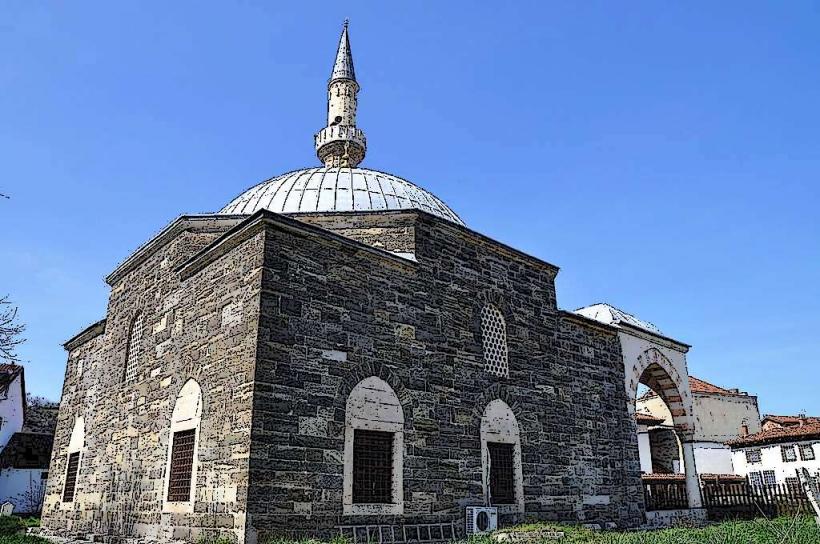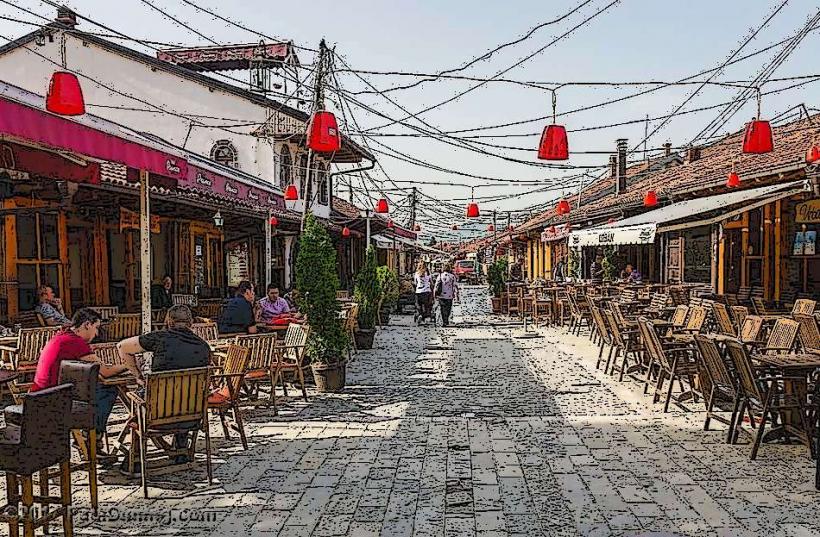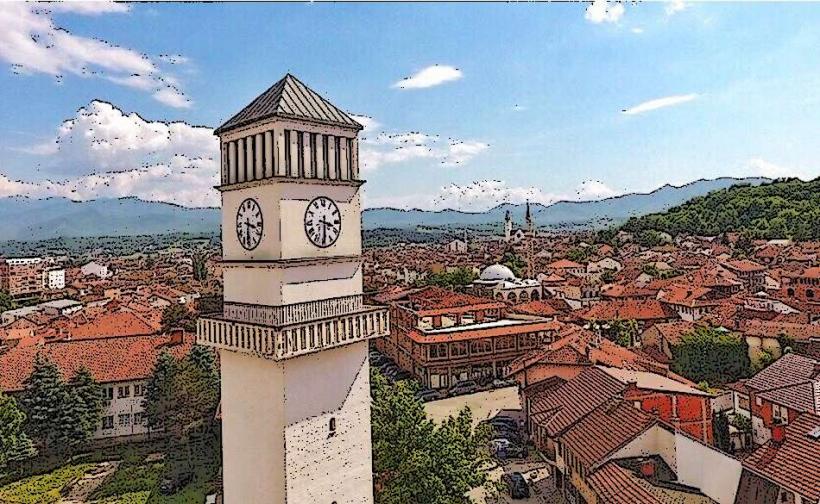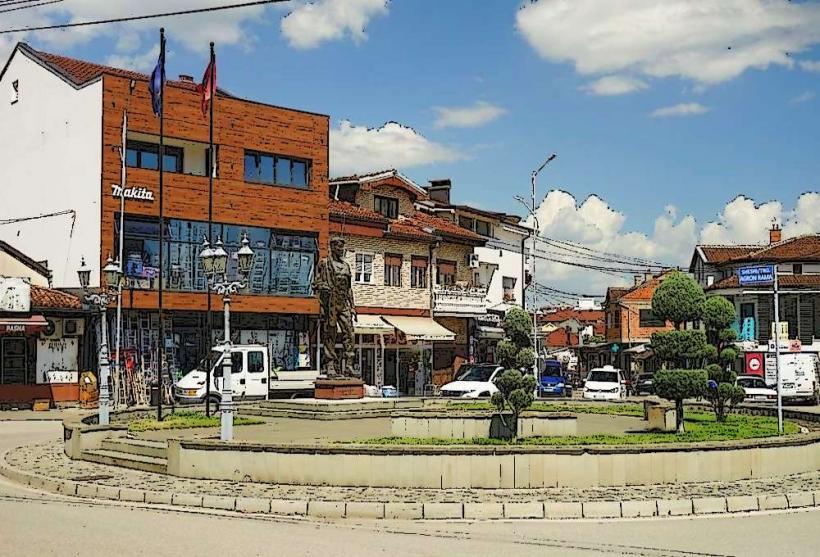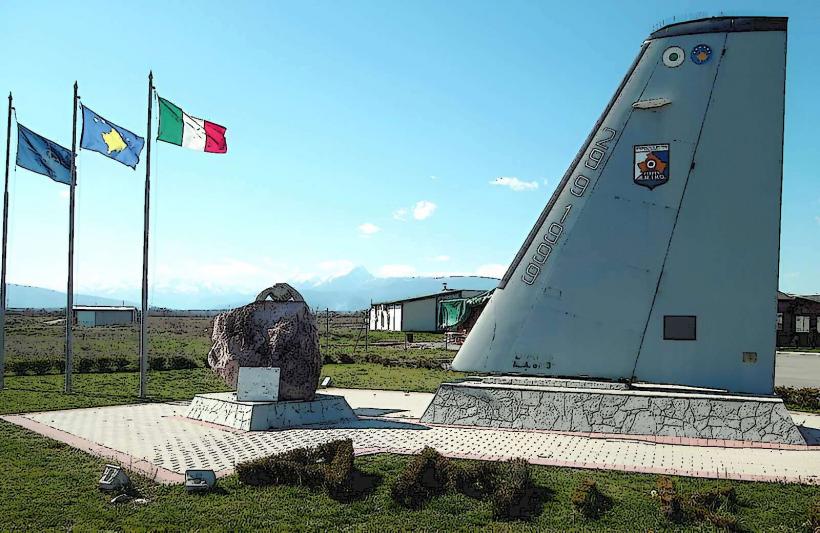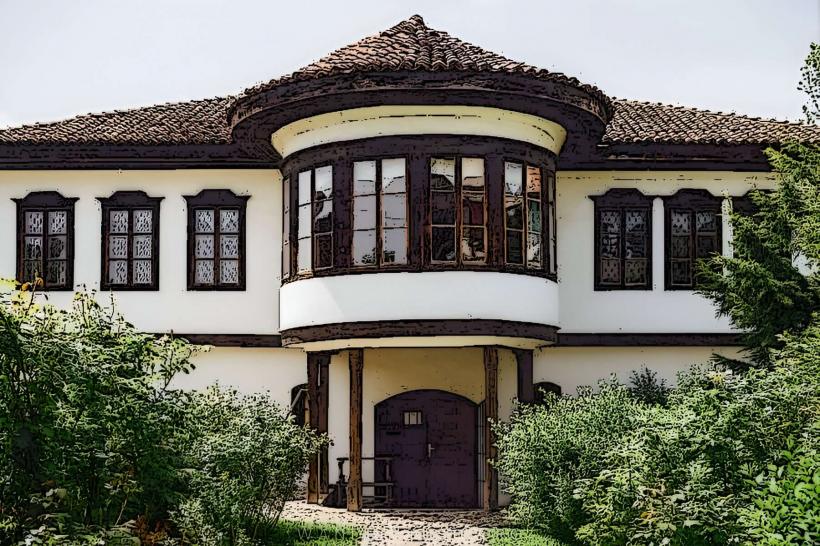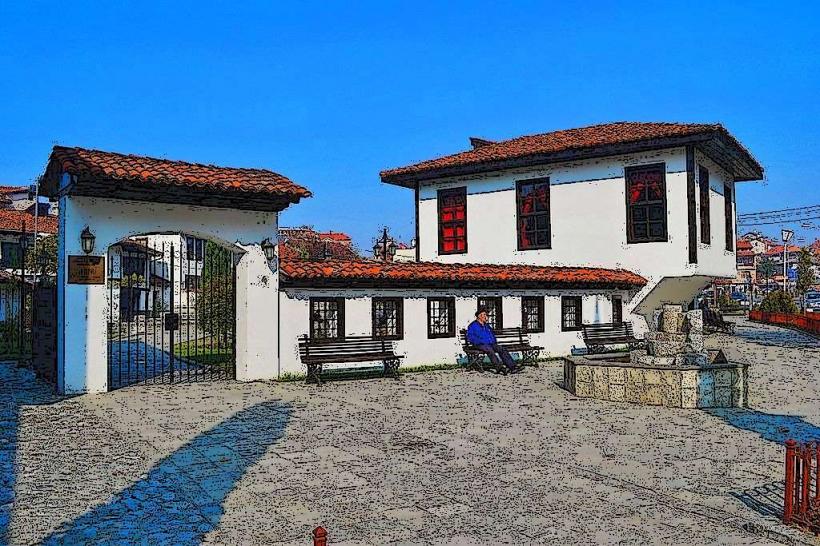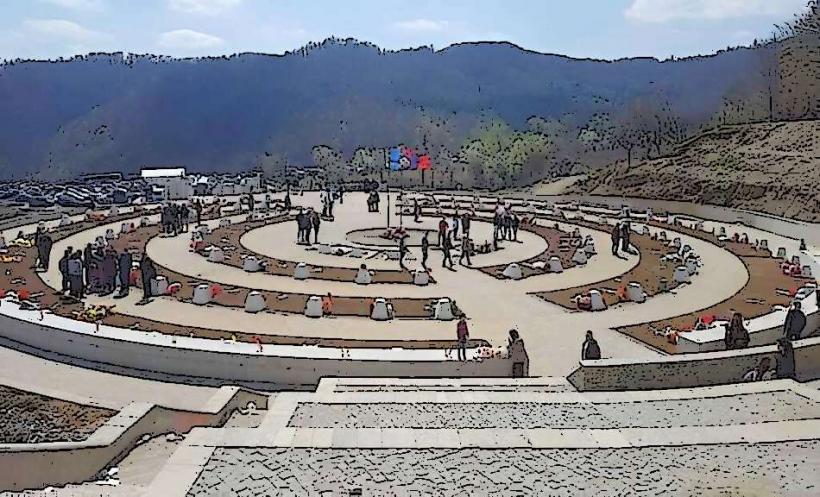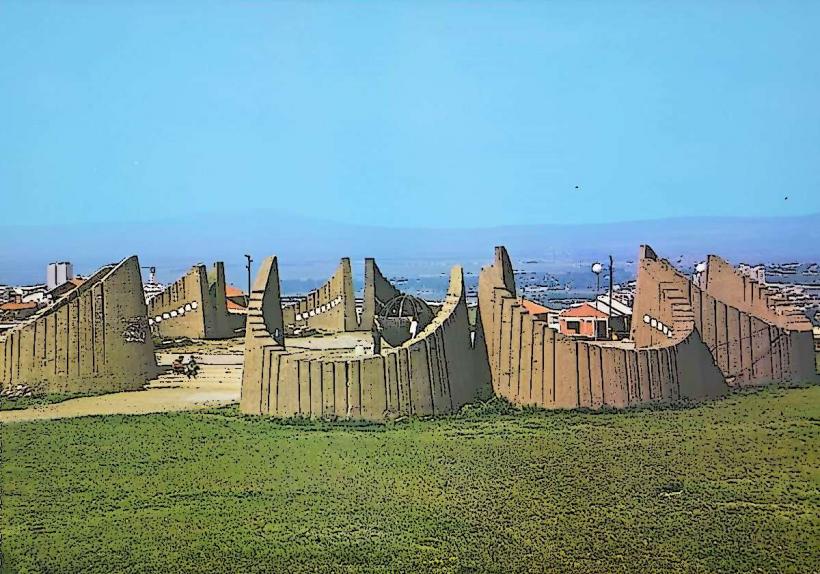Information
City: GjakovaCountry: Kosovo
Continent: Europe
Gjakova is a city in western Kosovo, located near the border with Albania. It is one of the larger cities in the country and plays a significant role both culturally and economically. Gjakova is situated in the District of Gjakova, in a fertile valley between the Prokletije Mountains (also known as the Accursed Mountains) and the Shar Mountains. The city has a rich history, with deep-rooted ties to the cultural, religious, and political evolution of the region.
Here’s a detailed overview of Gjakova, excluding specific landmarks:
Historical Background
Gjakova's history dates back centuries, and it has played an important role in the region's development throughout the medieval, Ottoman, and modern periods. The city’s early history is linked to the Illyrian and Roman presence in the Balkans, with evidence of settlements in the surrounding area.
Ottoman Period: The city’s most significant historical development came under Ottoman rule, which began in the late 14th century and lasted until the early 20th century. Gjakova grew significantly during the Ottoman period, becoming a prominent trading center and an important part of the empire's administration. It was known for its artisan workshops, particularly in textiles and leather goods, and as a major market town.
Serbian Influence: During the late medieval period, Gjakova was also an important center for the Serbian Orthodox Church, and many religious buildings were built during this time. However, as the Ottomans expanded their influence, the region became more Islamic, with many mosques built throughout the city.
20th Century: Gjakova's importance continued into the 20th century, first as part of the Kingdom of Yugoslavia, and later as part of Socialist Yugoslavia. The city has had a diverse population, with ethnic Albanians, Serbs, and other groups living side by side. The Kosovo War in the late 1990s left significant marks on the city, as much of the city center was destroyed during the conflict, particularly as a result of the battles between the Kosovo Liberation Army (KLA) and Serbian forces. The war also led to the displacement of large numbers of Serbs and other minorities.
Demographics
Gjakova is predominantly Albanian in terms of ethnicity, with the majority of the population identifying as ethnic Albanians. The population has fluctuated over the years due to the effects of the Kosovo War and subsequent migration patterns. Following the war, many ethnic Albanians returned to their homes, while many Serbs, as well as other ethnic groups, left the area due to safety concerns and the aftermath of the conflict.
Today, Gjakova is a multi-ethnic city, but the ethnic Albanians are the dominant group. Despite the challenges posed by ethnic and political divisions, the city is home to a mix of cultures, which can be seen in its food, traditions, and social life.
Political Importance
Gjakova has historically been a significant town in Kosovo, both politically and economically. During the Kosovo War, the city became a symbol of resistance and resilience for many ethnic Albanians. Gjakova’s role in Kosovo’s political landscape continues today, as it is part of the region’s efforts to rebuild and integrate into Kosovo's democratic system.
Although it is not one of the largest cities in Kosovo, Gjakova holds political importance due to its role in the Peja Region and its proximity to the border with Albania. As with other areas in Kosovo, Gjakova's political status has been affected by the ongoing tensions between Kosovo and Serbia, but it remains an important local center for governance.
Economy
Gjakova’s economy is traditionally based on agriculture, manufacturing, and trade. The fertile plains surrounding the city have made it a significant agricultural hub, especially for the cultivation of crops such as tobacco, wheat, corn, and fruits. Historically, the city was known for its craft industry, including leather goods, carpets, and textiles.
Today, Gjakova’s economy is recovering from the damage caused by the Kosovo War, with efforts to promote infrastructure development, attract investment, and revive local industries. The city is also known for its small businesses, particularly in the hospitality and retail sectors.
While the economy remains relatively underdeveloped compared to some other cities in Kosovo, Gjakova benefits from its strategic location near Albania and Montenegro, making it an important trade route and transit point.
Education
Gjakova is home to several primary and secondary schools, as well as a University of Gjakova. The university was established in the post-war period and offers programs in a variety of fields, including business, education, and engineering. The educational system in Gjakova, as in many parts of Kosovo, is improving, although it faces challenges such as outdated infrastructure, limited resources, and high dropout rates among youth.
The educational system has benefited from international aid and collaboration, particularly from the European Union and other Western partners, who have helped fund various reforms.
Cultural Heritage
Gjakova has a rich cultural heritage, influenced by its Ottoman history and diverse religious background. The city's traditions reflect a blend of Albanian, Turkish, and Serbian cultures. Many festivals, cultural events, and folk traditions are celebrated throughout the year.
Traditional Crafts: Gjakova is known for its artisans, particularly those who specialize in weaving, textile production, and leatherworking. The city’s handicrafts are an important part of its cultural identity and continue to attract visitors and collectors.
Cuisine: The local cuisine in Gjakova is diverse, reflecting the city’s ethnic mix. Traditional Albanian dishes, such as flija (a layered pastry), burek (a savory pastry filled with meat or cheese), and tavë kosi (a lamb and yogurt dish), are commonly served in local restaurants.
Infrastructure and Transportation
Gjakova is well-connected to the rest of Kosovo and neighboring countries. The city is accessible by road, with a direct connection to Pristina, the capital of Kosovo, and to Peja, another important city in the western part of Kosovo. Gjakova also has a railway station, although Kosovo’s rail network is underdeveloped and has limited service.
The city's infrastructure has been improving in recent years, especially since the war. Efforts to restore and develop local roads, utilities, and public services have helped boost the city's recovery. However, challenges still remain in terms of urban planning and public services.
Tourism
Although Gjakova is not as well-known for tourism as some other cities in Kosovo, it has significant potential due to its historical and cultural heritage. The city’s old town, with its Ottoman-era architecture, traditional crafts, and cultural landmarks, makes it an attractive destination for those interested in history and culture. Additionally, Gjakova’s proximity to natural attractions, such as the Prokletije Mountains, makes it a good starting point for outdoor activities like hiking and mountain biking.
The city’s market, Çarshia e Madhe (Great Bazaar), is also a popular spot, offering a glimpse into the city’s historical role as a trade and craft center. The bazaar is known for its historic mosques, traditional stores, and lively atmosphere.
Challenges and Future Prospects
Gjakova faces several challenges as it moves forward into the 21st century:
Ethnic and Political Tensions: Like much of Kosovo, Gjakova is affected by ongoing ethnic and political divisions, particularly between ethnic Albanians and Serbs. Tensions from the Kosovo War have left deep scars, and efforts at reconciliation and integration are ongoing.
Economic Development: The city faces economic difficulties, including high unemployment rates, especially among young people. Economic revitalization remains a key challenge for Gjakova, which relies on agriculture, small businesses, and remittances from the diaspora.
Urbanization and Infrastructure: Gjakova’s infrastructure still needs significant investment to modernize public services and meet the demands of a growing population. Improved transportation, waste management, and water distribution systems are needed to foster long-term growth.
Conclusion
Gjakova is a city with a rich history, a strong cultural identity, and a central role in Kosovo’s political and economic landscape. Despite the challenges it faces, Gjakova is recovering and rebuilding, and its future looks promising, particularly with the potential for increased tourism, economic investment, and a more integrated society. The city's historical and cultural heritage, combined with its natural beauty, make it an important part of Kosovo’s identity.

